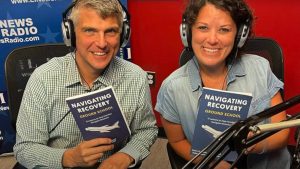
Considering going to treatment is always an emotional experience. Therefore, there are valid reasons to avoid going and taking the thirty days off. What I have learned is that there’s never a good time to take thirty days away from life. Why?
The best time to go to treatment is NOW
People often tell me that they will “think” about going to treatment. They say they’ll go in a month’s time, when things calm down, or when things change. Life is full of stressors, and we can always let them prevent us from going to treatment. But at some point, it’s important to make arrangements so that you can go to treatment now.
The thing about waiting to go to treatment is that the stressors never leave. They are there now and will also be there in a week, a month, and a year. There’s just never a perfect time to go. The tradeoff of taking a month away for treatment is that, you’ll come back with more energy, health, and ability to be productive.
Identify & admit your own limitations
Often people are surprised at how much spare time they have when they come out of treatment. If they lost four, five, six hours a day to drinking, they’re gaining all of that back. I’ve seen people make incredible changes in early sobriety with their new spare time. They reconnect with family or take on a new hobby; like my personal journey of marathon running!
What barriers do you have to entering treatment now? The most common barriers are finances, childcare, pet care, and job concerns. It’s important to identity which concerns are legitimate. Identify which are fear-based and preventing you from getting the help that you need.
In the case of childcare, there’s always a loved one who can help, especially in a situation as serious as this one. Your loved ones want to see you get better and know that you taking this time will make you a better parent. Parents are always concerned about leaving their children for a month, and treatment facilities are aware of this. Hence, they allow calls with children.
Quit making excuses for your addiction
I am always surprised when someone is using pet care as an excuse. There are certainly many options for taking care of your pet so you can take care of yourself.
Financial concerns can be tackled in a few ways. Most people have insurance that will cover treatment. Even though finding the right facility always takes a bit of time and more than a few phone calls. For people who don’t have insurance, there a are a number of free and low-cost resources that can be tapped into.
People recover in many different ways and going to a fancy rehab is not for everyone. Finding something affordable or something covered by your insurance is great. It’s better than an expensive program that will cause you financial stress.
Job concerns can certainly be complex. Often employers already know that there’s a problem. In some cases, employers are very supportive of someone taking the time off. Alcoholism is also a protected disease; employers can’t ask questions about your private health concerns. There are also long-term benefits available down the line.
Think of the gains recovery could deliver
When considering treatment, it’s most important to consider what you stand to gain. Quitting drug and alcohol use has benefits that can last a lifetime. A tradeoff of thirty days can save your career, mend your family, and even add healthy years to your life. It is impossible to sign a dollar value to these things. What would it be like to stop missing work, to stop waking up sick, and to save the money you now spend on drugs and alcohol?
A thirty-day treatment program may seem expensive. It may seem like too large a time commitment. If you actually evaluate what you can gain, the investment of time and money will seem well worth it.
About Adam Banks
Adam Banks is a certified interventionist and the owner of Adam Banks Recovery. After receiving an MBA from the University of Chicago, Adam built a company acquired by United Health Care. His discipline and attention to detail comes from his former career as an airline pilot, holding an ATP, the FAA’s highest license.
Today, Adam is dedicated to helping others achieve long-term sobriety. His work has guided executives, pilots, and physicians on paths to recovery. Adam brings families together through a loving and inclusive approach.
Adam has authored four books on addiction. His recent work, Navigating Recovery Ground School: 12 Lessons to Help Families Navigate Recovery, educates families on the entire intervention process. He also offers a free video course for families considering an intervention for a loved one.
Adam is available for alcohol and drug intervention services in New York, Long Island, the Hamptons as well as nationally and internationally.




